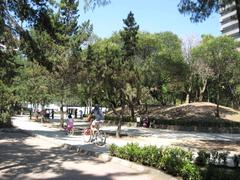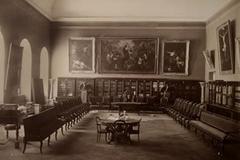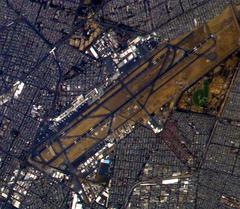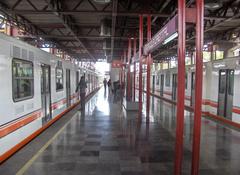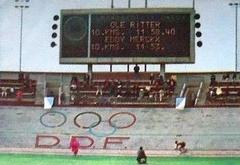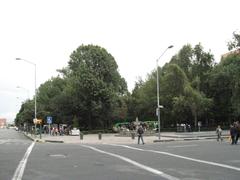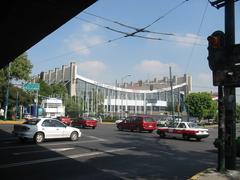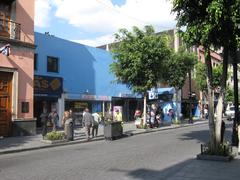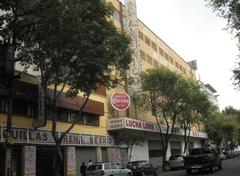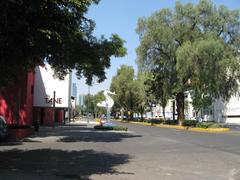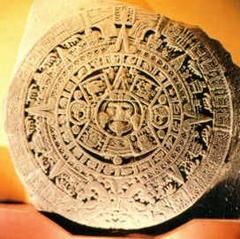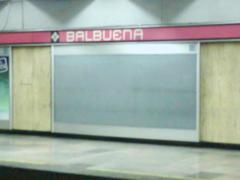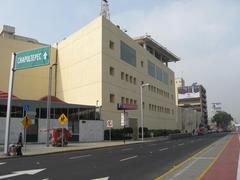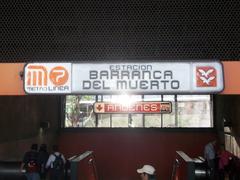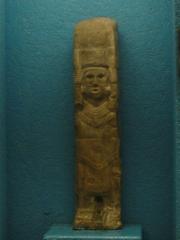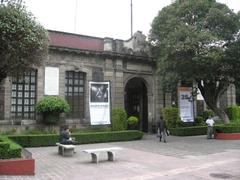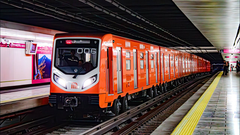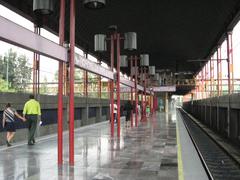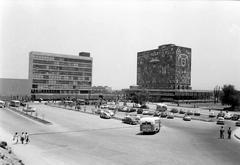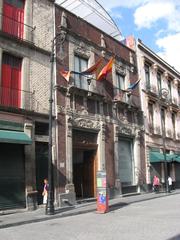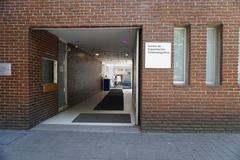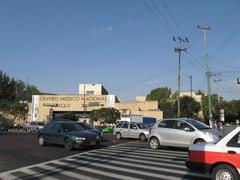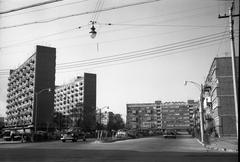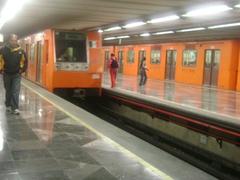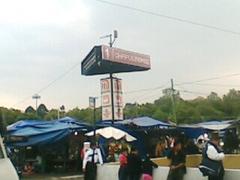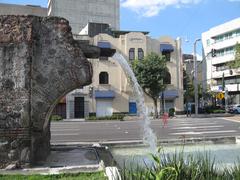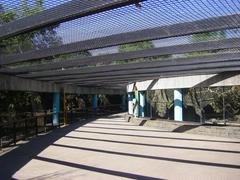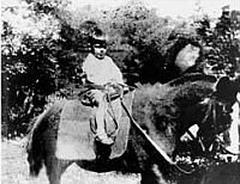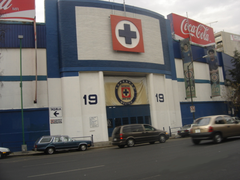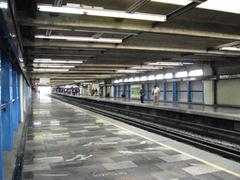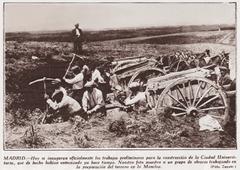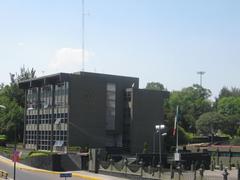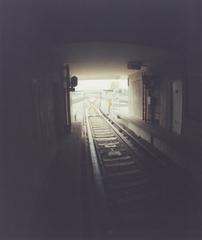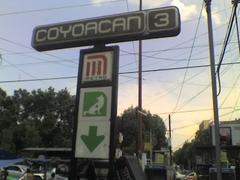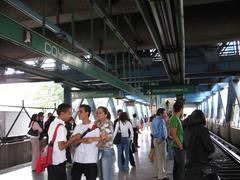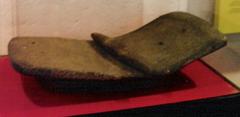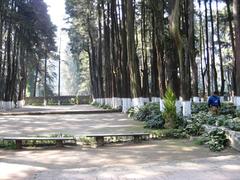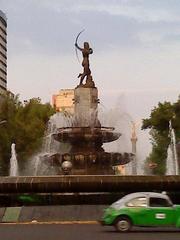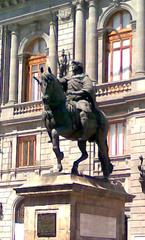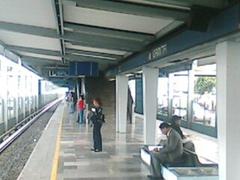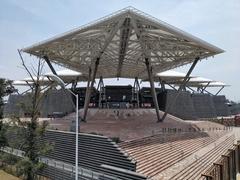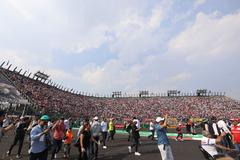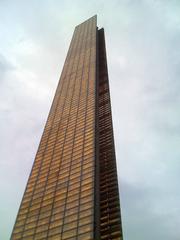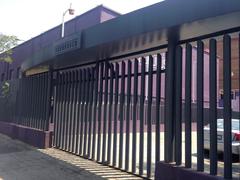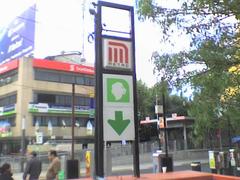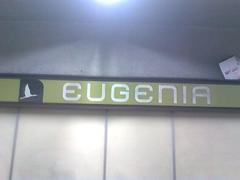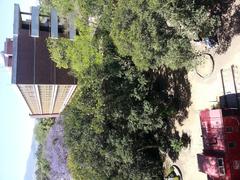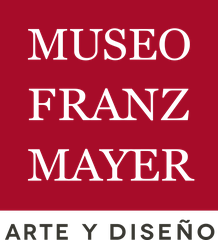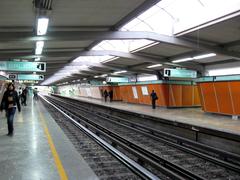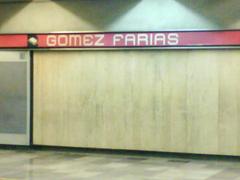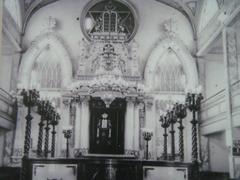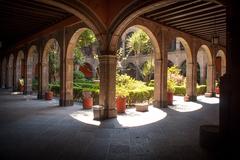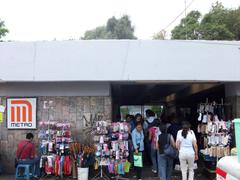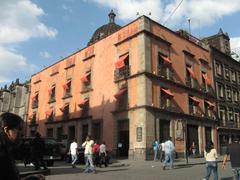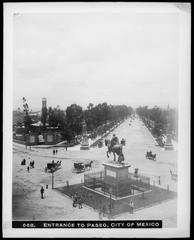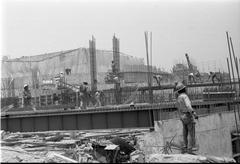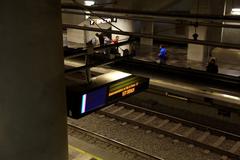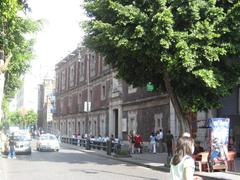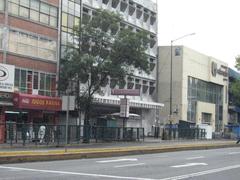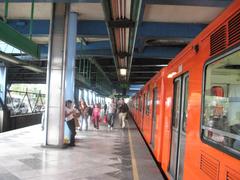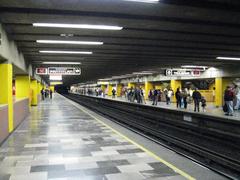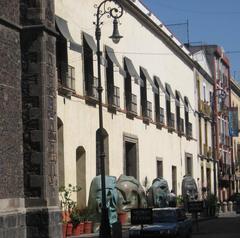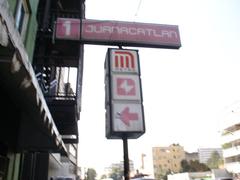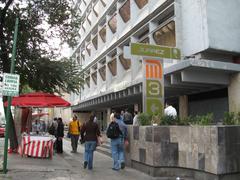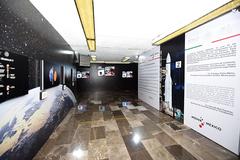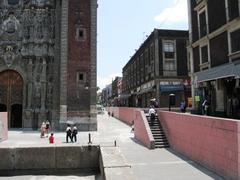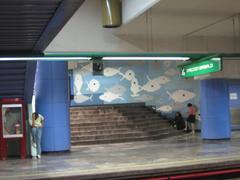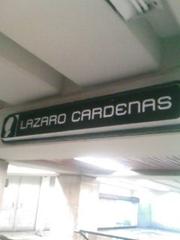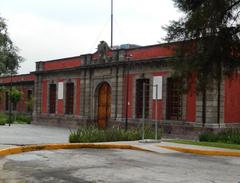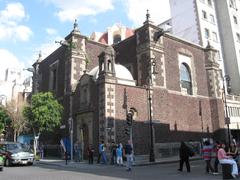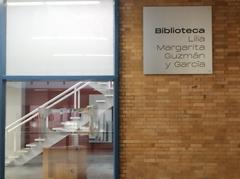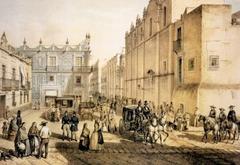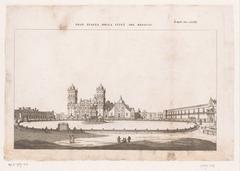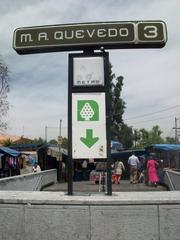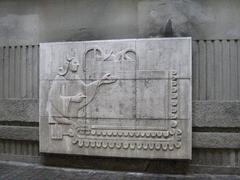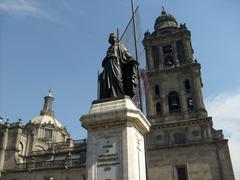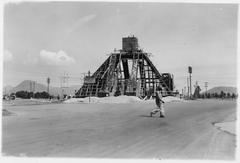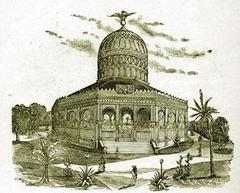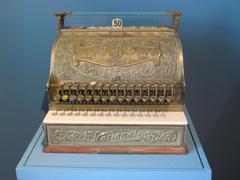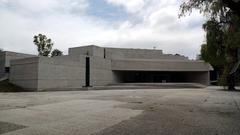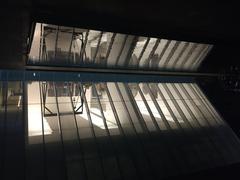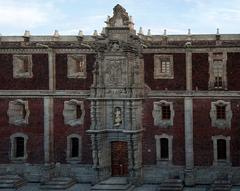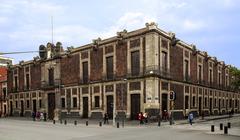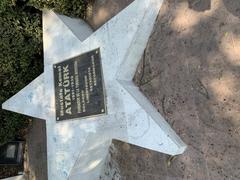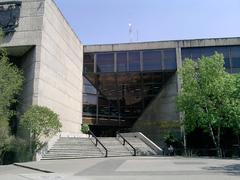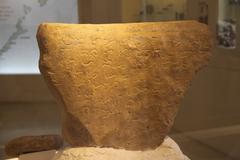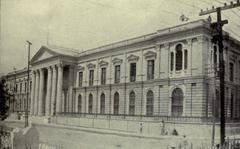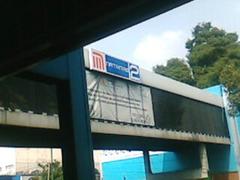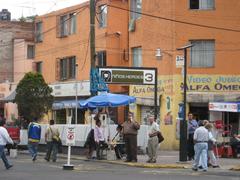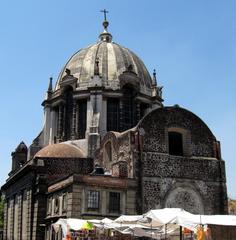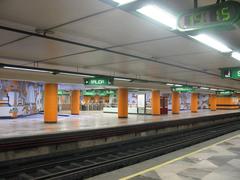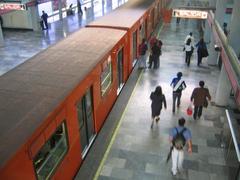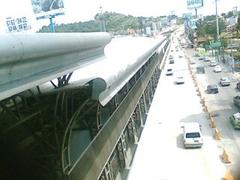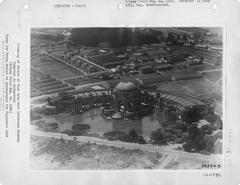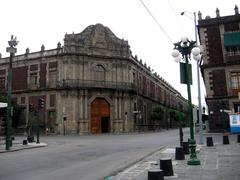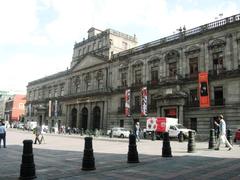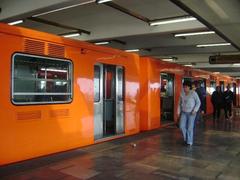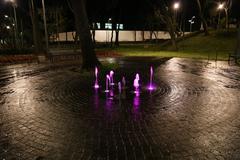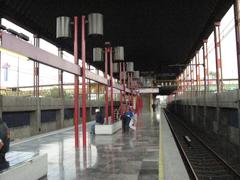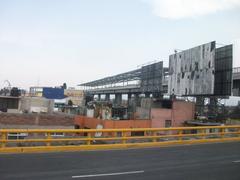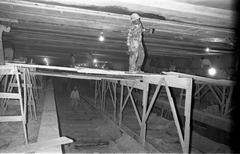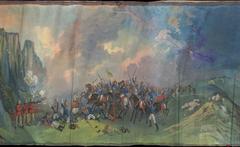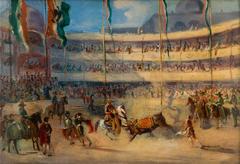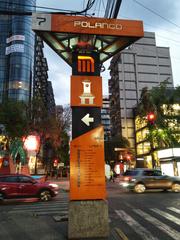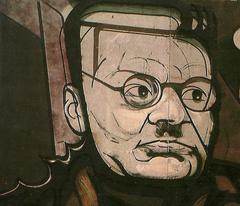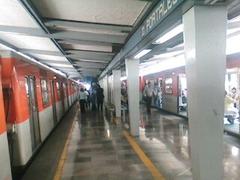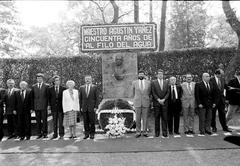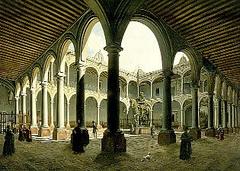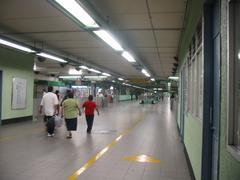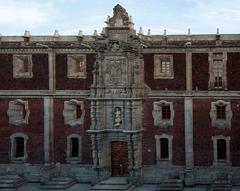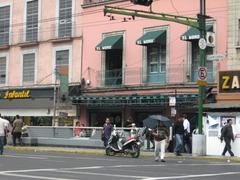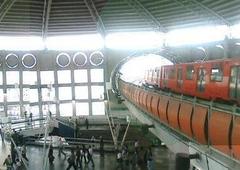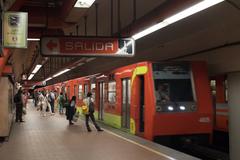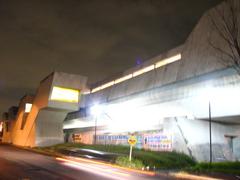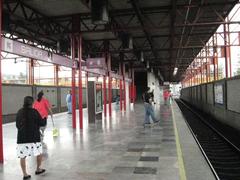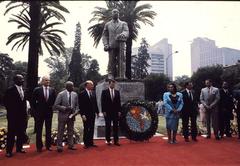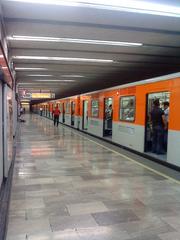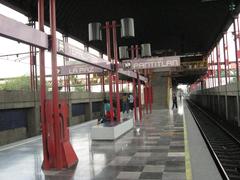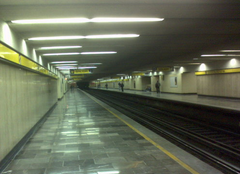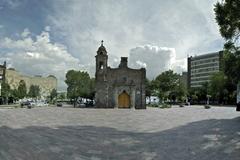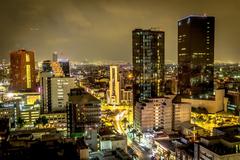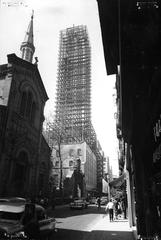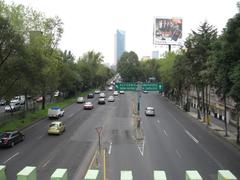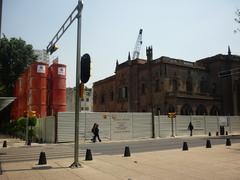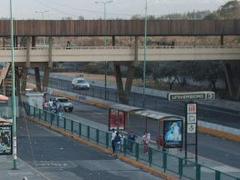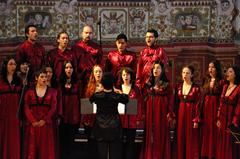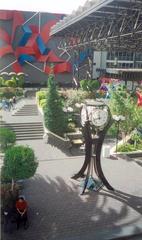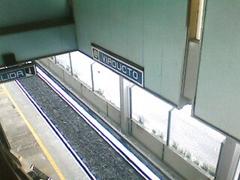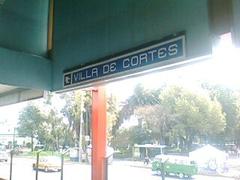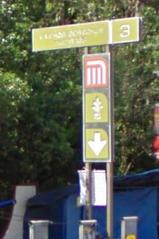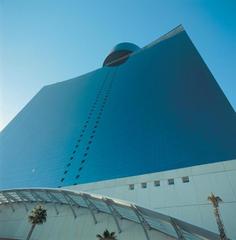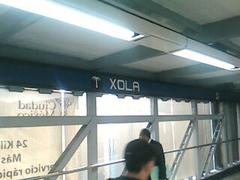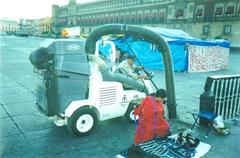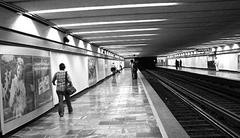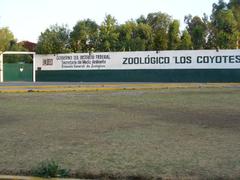Museum of Memory and Tolerance Mexico City: Visiting Hours, Tickets, and Comprehensive Guide
Date: 04/07/2025
Introduction
The Museum of Memory and Tolerance (Museo Memoria y Tolerancia, MMyT), situated in the heart of Mexico City, is a landmark institution dedicated to educating visitors about the tragedies of genocide and the enduring importance of tolerance, peace, and human rights. Since its opening in 2010, the museum has become a beacon for remembrance and social responsibility, offering immersive exhibits, educational programs, and a unique architectural experience. Whether you are a history enthusiast, human rights advocate, or a cultural traveler, the museum provides a compelling exploration of the past and a call to action for a more just future (Mexico News Daily; Museum Official Site).
Quick Facts
- Location: Plaza Juárez, Av. Juárez 8, Col. Centro, Mexico City
- Hours: Tuesday–Sunday, 10:00 AM–6:00 PM (last entry at 5:00 PM); closed Mondays
- Tickets: General admission: 95–120 MXN; discounts for students, seniors, and groups
- Accessibility: Fully accessible (wheelchair ramps, elevators, audio guides)
- Recommended Visit Duration: 2–3 hours
- [Official Site: Museum of Memory and Tolerance](#official-site:-museum-of-memory-and-tolerance)
Historical and Cultural Significance
Founded by Sharon Zaga and Mily Cohen, the museum was inspired by a personal commitment to Holocaust remembrance and universal human rights. Overcoming more than a decade of challenges, they established the museum to confront global indifference, violence, and discrimination, with a special focus on the Latin American context. The MMyT serves as a vital platform for dialogue, education, and advocacy, connecting the memory of past atrocities—such as the Holocaust, Armenian, Rwandan, Cambodian, Bosnian, and Guatemalan genocides—with a call for tolerance and peace in the present (Mexico News Daily; Sites of Conscience).
Architecture and Visitor Journey
Design and Symbolism
The museum’s striking architecture, designed by Arditti + RDT Architects, uses reinforced concrete, steel, and wood to create a journey that is both physical and symbolic. Visitors begin on the sunlit upper levels, representing hope and freedom, and descend through immersive exhibits that confront the consequences of intolerance and genocide. The building’s integration with Plaza Juárez and its proximity to landmarks like Palacio de Bellas Artes and Torre Latinoamericana embed it deeply in Mexico City’s cultural landscape (e-architect).
Notable Features:
- Dramatic Atrium: Houses independent volumes for exhibitions, education, and administration.
- Floating Children’s Memorial: A powerful installation commemorating the two million children lost to genocides.
- Children’s Educational Area: A dedicated, age-appropriate space for young visitors to learn about tolerance through interactive workshops and games.
- Materiality and Light: Utilizes natural and controlled lighting to guide the emotional arc of the visitor experience.
Exhibitions
Permanent Exhibitions
- Memory Section: Chronicles the Holocaust and other major genocides of the 20th and 21st centuries through artifacts, survivor testimonies, original photographs, and multimedia presentations. Highlights include an authentic Holocaust-era train car from Poland and powerful installations like “Lost Potential” and “The Cube” (Travel Buddies).
- Tolerance Section: Focuses on human rights, diversity, discrimination, and the building of inclusive societies. Interactive displays and the “YOU Installation” invite personal reflection on promoting tolerance in everyday life.
Temporary Exhibitions and Events
The museum frequently hosts temporary exhibitions and special events on themes related to peace, diversity, and contemporary human rights issues. These may include art installations, film screenings, lectures, and workshops. Check the official events calendar for current offerings (Time Out).
Visitor Information
Location and Getting There
- Address: Av. Juárez 8, Colonia Centro, Cuauhtémoc, 06010 Ciudad de México, CDMX, Mexico
- Public Transport: Juárez Metro Station (Line 3) is a short walk away; multiple bus routes serve the area.
- Parking: Limited public garages and street parking nearby; public transport is recommended, especially during peak hours.
Hours and Tickets
- Open: Tuesday–Sunday, 10:00 AM–6:00 PM (last entry at 5:00 PM)
- Closed: Mondays and select public holidays
- Tickets: 95–120 MXN; discounts for students, seniors (with valid ID), and groups; free for children under 12 in the children’s area (Travel Buddies)
Tip: Reserve tickets online in advance, especially on weekends and holidays, to avoid queues.
Accessibility
- Fully wheelchair accessible (ramps, elevators, accessible restrooms)
- Audio guides in Spanish and English included with admission
- Bilingual exhibit labels and multimedia presentations
- Staff assistance available for visitors with special needs (We Heart)
Amenities
- Restrooms: Accessible facilities on each floor
- Café: Light meals and refreshments
- Gift Shop: Books, souvenirs, educational materials
- Lockers: Secure storage for personal items
Planning Your Visit
Duration
Set aside at least 2–3 hours to fully experience the exhibitions and interactive installations. The self-guided tour begins on the top floor and descends through a chronological and thematic narrative (33Travels).
Guided Tours and Educational Programs
- Guided Tours: Available in English and Spanish; advance booking recommended via the museum website.
- Educational Workshops: Offered for schools, universities, and groups, focusing on human rights and tolerance.
Family Visits
- Children under 15 must be accompanied by an adult.
- Dedicated children’s area offers age-appropriate materials and activities.
- Main galleries contain sensitive content; parental discretion is advised (33Travels).
Photography and Conduct
- Photography without flash is permitted in most areas; tripods are restricted.
- Maintain a respectful and contemplative atmosphere, as many exhibits are emotionally significant (Travel Buddies).
Food and Drink
- Café available; outside food and drink restricted to designated areas.
Nearby Attractions
Combine your visit with a stroll through Alameda Central Park or visits to the Palacio de Bellas Artes and Torre Latinoamericana—all within walking distance. These sites offer additional opportunities to immerse yourself in Mexico City’s rich cultural and historical heritage.
Safety and COVID-19 Measures
The museum adheres to current public health protocols, including sanitation, hand sanitizing stations, and capacity limits as needed. Check the official website for the latest updates before your visit.
FAQs
Q: What are the Museum of Memory and Tolerance’s hours of operation?
A: Tuesday–Sunday, 10:00 AM–6:00 PM (last entry 5:00 PM); closed Mondays.
Q: How much are tickets?
A: 95–120 MXN; discounts for students, seniors, and groups.
Q: Is the museum accessible for visitors with disabilities?
A: Yes, with ramps, elevators, accessible restrooms, and bilingual audio guides.
Q: Are guided tours available?
A: Yes, in English and Spanish; book in advance online.
Q: Can I bring children?
A: Yes; children under 15 must be accompanied by an adult. Children’s area available.
Q: Can I take photos?
A: Yes, in most areas without flash or tripods.
Virtual Resources and Additional Guides
- Virtual Tours: Preview exhibits and architectural highlights online via the official site.
- Audio Guides: Download digital guides for enhanced, interactive experiences.
- Related Articles: Explore more about Mexico City’s historical sites.
Summary and Call to Action
The Museum of Memory and Tolerance is an essential stop for anyone seeking to understand the history and ongoing challenges of human rights, tolerance, and justice. With its engaging exhibitions, thoughtful design, and accessible resources, it offers a transformative experience for visitors of all backgrounds. Plan your visit, book your tickets in advance, and allow enough time to reflect deeply on the stories and lessons presented.
Don’t miss the opportunity to join the ongoing conversation about memory, coexistence, and the importance of standing up for human rights. Visit the Museum of Memory and Tolerance, download their digital guide app, and follow their updates on social media.
Sources
- Museum of Memory and Tolerance Mexico City: History, Visiting Hours, Tickets, and Visitor Guide, 2025, Mexico News Daily (Mexico News Daily)
- Museum of Memory and Tolerance Mexico City: Visiting Hours, Tickets, and Architectural Highlights, 2025, e-architect (e-architect)
- Exhibitions and Collections, 2025, Museum Official Site (Museum Official Site)
- Museum of Memory and Tolerance Visiting Hours, Tickets, and Visitor Guide in Mexico City, 2025, Travel Buddies (Travel Buddies)
- Museum of Memory and Tolerance Mexico City, 2025, Sites of Conscience (Sites of Conscience)
- Museum of Memory and Tolerance Mexico City, 2025, WhichMuseum (WhichMuseum)
- Museum of Memory and Tolerance Mexico City, 2025, Time Out (Time Out)
- 33Travels: Museum of Memory and Tolerance (33Travels)
- We Heart: Museo Memoria y Tolerancia Mexico City (We Heart)
